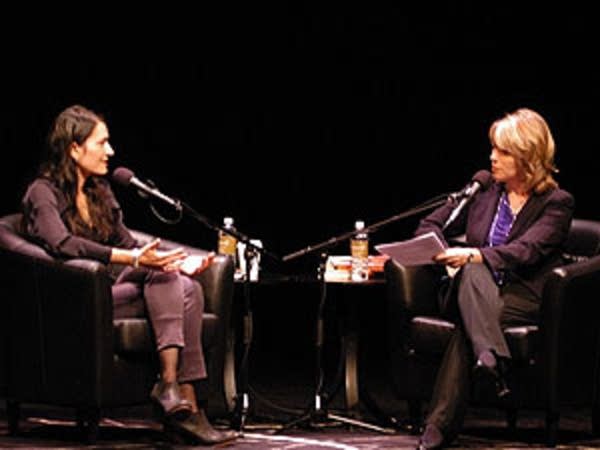Thread Book Hour: Conversations with Claire Messud and Nicole Krauss

Claire Messud's newest novel, "The Burning Girl," explores the wistfulness that comes with realizing the friendships we make when we're young unravel as we reach adulthood.
"I think there are lots of reasons for their intensity and also for why in adulthood it also doesn't continue in our friendships," Messud said during a discussion with MPR News host Kerri Miller. "You get so hurt as a young person, often, that you're a little more guarded."
Things like college, family and careers also diminish our friendships as our attention is pulled in so many different directions, Messud said.
When you're young, there are almost no boundaries. "Which is part of what makes it like romance," she said. Messud calls "The Burning Girl" a children's book for adults.
Create a More Connected Minnesota
MPR News is your trusted resource for the news you need. With your support, MPR News brings accessible, courageous journalism and authentic conversation to everyone - free of paywalls and barriers. Your gift makes a difference.
"I think there's a different narrative logic," she said. "We're not looking to analyze, we're looking to live it, we're looking to be in it."
Even if children don't fully understand a story, they are still able to accept what it happening in it, Messud said, but adults tend to question the fantasy.
Messud tried to place her main character in limbo between these two ideologies at the cusp of adolescence.
Readers often want an expect that authors will have all the answers when it comes to the meaning of and the inspiration for their books. But that's not something they can always give, said Nicole Krauss, author of "Forest Dark."
"I can't help but feel that it betrays something about art, wich is that the process is mysterious. It's mysterious to me," she said.
We take reality as law, but really the value we put on objects and ideas are all flexible and fictional, Krauss said.
"In a sense, this book wants to open that question and say, but isn't it also the case that imagined worlds, the worlds we find in art and in literature, keep drawing us because they bring us some deeper news about truth," she said.
To listen to both conversations, click the audio player above.